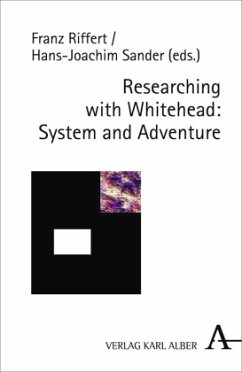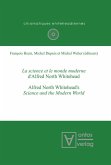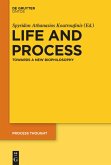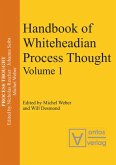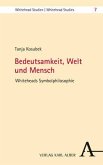This book explores the wide range of stimulating research possibilities Whitehead's process approach has to offer for different disciplines of thought: philosophy, physics, chemistry, biology and neuroscience, chemistry, psychology, education, technology, ethics and feminism as well as theology.
It will be demonstrated that with the use of Whitehead's relational process approach to reality long standing problems concerning contradictory aims caused by intellectual bifurcations are creatively transformed and - sometimes surprising - new solutions can be elaborated. In different fields of research this book is offering arguments for a fundamental paradigm shift.
In a period of major changes and growing complexity of problems in all fields of life which increasingly require interdisciplinary handling Whitehead's relational process approach gives substantiated hope for finding new pathways into a more human future. The papers of this book were presented at the 6th International Whitehead Conference 2006, Salzburg.
It will be demonstrated that with the use of Whitehead's relational process approach to reality long standing problems concerning contradictory aims caused by intellectual bifurcations are creatively transformed and - sometimes surprising - new solutions can be elaborated. In different fields of research this book is offering arguments for a fundamental paradigm shift.
In a period of major changes and growing complexity of problems in all fields of life which increasingly require interdisciplinary handling Whitehead's relational process approach gives substantiated hope for finding new pathways into a more human future. The papers of this book were presented at the 6th International Whitehead Conference 2006, Salzburg.

